
Our Courses
Our program provides a variety of courses, which can be categorized into Dissertation courses, Core courses and Elective courses. These courses will be provided in either semester 1 or 2.
Semester 1

SEED6101
Bioclimatic Building Design
This course introduces the principles of bioclimatic building design, so as to maximize thermal comfort and minimize the need for energy for heating and for cooling of the buildings. The effect of various architectural decisions on the indoor climate is discussed in details. The effect of any design feature, such as that of building’s orientation, is not “fixed” but depends on the design details of other design features, such walls’ color and windows’ shading conditions. These quantitative interactions between the effects of the various design details will be discussed in details in the class.
SEED6102
Innovation and Smart Technology for Sustainable Development
The course first looks into the theoretical framework of an integrated approach to smart and sustainable development. A brief introduction to technicalities of the modelling structure as well as the simulation engines will lay the foundation for how the tools could be applied in practice. The rest of course focuses on methods to apply these tools to design studies, and how useful information could be interpreted from the simulation results.

SEED6103
Environmental Sound Simulation and Performance Assessment Tools

This is a hands-on course running in day-long weekly sessions introducing the analytical procedures and computational tools that drive the research agenda of the Master Program. The course focuses on the simulation of environmental sound in the urban setting. It will begin with the evaluation of indoor and outdoor, and instrumental measurements, of environmental sound, supplemented by field observations. This is followed by computer modelling of sound propagation in urban open spaces, testing of models against measurements and performing simulations to assess the effects of urban design against targets and benchmarks. A range of computational tools will be introduced and applied to diagnostic tasks as well as generative processes. Their application to environmental noise control and soundscape design be explored through team projects providing the essential expertise required for undertaking the master dissertation research in Terms 2.
SEED6104
Dissertation Part 1 (Capstone Experience)
The written dissertation allows student an opportunity to conduct a scholarly investigation into a chosen aspect of sustainable and environmental design. Dissertation Part 1’s teaching focuses on the research methodology, literature review and case studies.

SEED6303
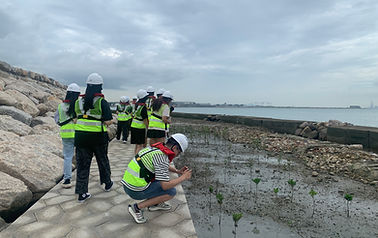
Environmental Policy and Management for Megacities
This course provides an advanced introduction to public policies for protecting the natural environment, and to conflicts over the use of those policies and who has the authority to make decisions about them. The course will introduce students to some core concepts in environmental economics and to familiarize students with the dilemmas and trade-offs that governments face in making decisions with respect to the natural environment. It also aims to make students aware of a range of factors that need to be considered when making environmental policy.
Semester 2
SEED6201
Green Building Assessment and Climate Responsive Design
This course first introduces the background and development of green and sustainable development. It then examines the environmental impact of building activities on the eco-system through a number of more established environmental concepts (for example, embodied energy, carbon dioxide emission, energy life cycle assessment, environmental impact assessment). Tools and methods for assessing building’s environmental impact will be critically evaluated and applied through case studies.
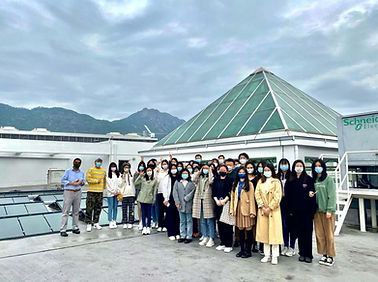
SEED6202
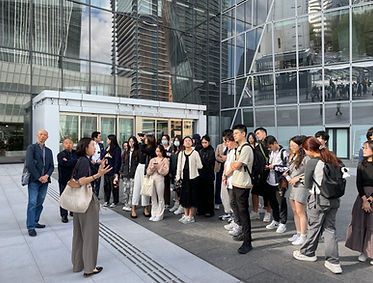.jpg)
City Risk and Resilience: Emerging Planning Theories and Practices
This course provides an introduction of city risk and resilience: urban systems design using BIM. Cities like Tokyo and Yokohama in Japan are facing with the urgent address the issue of mitigating carbon emission risk and resilience against the adverse impacts of climate change. Achieving carbon neutrality and wellbeing of cities will also enabling us to innovate future building and transport infrastructures as well as facilitate future technologies developments and economic and social innovations. The aim of the Course is to learn about newly developing urban systems design approach using BIM as a shift from conventional urban planning, architecture, transport, and ICT independent developments. Especially we focus on the community-level implementation of BIM for assessing the district level sustainably. During the lectures, this new approach will be introduced and discussed with the more comprehensive, multidisciplinary experts in the associated fields including the real estate developer, general construction company, AI architect, AEV researcher, carbon neutral building owners and LEED-ND certification company BIM engineers.
SEED6203
Designing for a Changing Climate
This course provides an introduction to climate-sensitive design principles and solutions for solving climate change-related environmental problems. Students are encouraged to team up to conduct their own group projects. The aims of this module are (i) to provide an introduction to the physical basis of climate change; (ii) to discuss how a changing climate might impact the built environment; (iii) to consider what adaptation and mitigation actions can be taken to reduce this impact; (iv) to develop an understanding of how climate-resilient built-environment and landscapes can be designed.
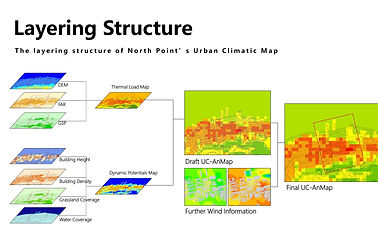
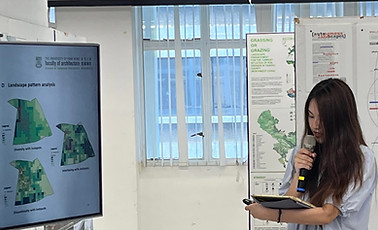
SEED6204
Dissertation Part 2
Dissertation of part 2 allows student an opportunity to conduct an original research for their selected case studies and develop the environmental design solutions and related findings to meet the need of sustainable development.
SEED6306
Topical Study II in Sustainable Design and Urban Development
This course provides a comprehensive introduction and hands-on practice to both fundamental and advanced geospatial data processing techniques. The course will introduce students to the essential elements, theories, and methods of geospatial data processing while gaining proficiency in a widely-used geospatial data processing software. Through relevant case studies, exercises, and group assignments, students will learn how to collect, manage, and analyse geospatial data. The course aims to equip students with quantitative tools and methods that support sustainable urban design.
